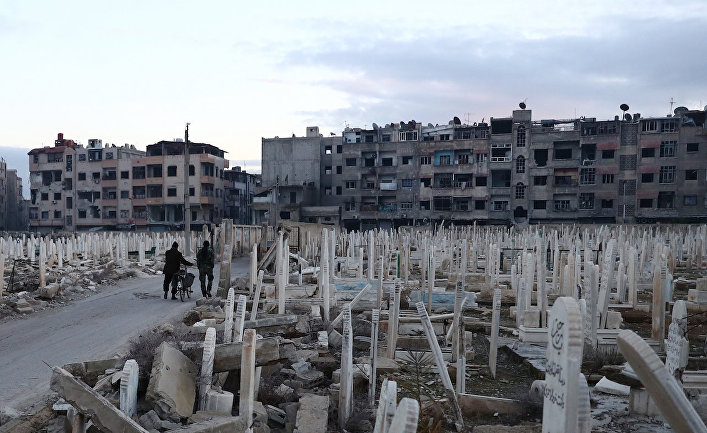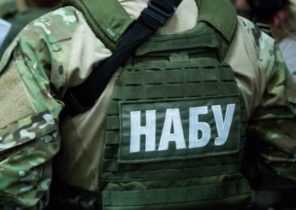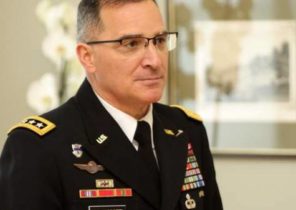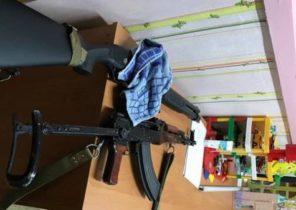
Now, when the forces that support the Syrian government, completed the capture of Aleppo, and Russia, Turkey and Iran agreed to a shaky ceasefire, it is likely that President Bashar al-Assad and the regime, which he oversees, will continue to rule Syria in one form or another. In an interview with French media, published last week, Mr. Assad said that Aleppo is a “turning point in the war” and that the government is “on the way to victory.”
But if this is the case, what actually won Mr. Assad?
Let’s look at the numbers (the statistical data are estimates, and they are likely to deteriorate, while maintaining the existing matrix of war in Syria). More than 80% of Syrians live below the poverty line. According to the data compiled in the 2016 report, nearly 70% of Syrians are living in extreme poverty, and this means that they are unable to meet their basic needs. The indicators given likely increased since this study. The unemployment rate is approaching 58%, while a significant number of people involved as smugglers, insurgents or someone else in the economy war.
The average life expectancy dropped by 20 years after the start of the uprising in 2011. About half of the children do not attend school — this is a lost generation. In the country the disaster occurred with public health system. Formerly under the control of such diseases as typhoid, tuberculosis, hepatitis a and cholera had again become endemic. And polio — he had previously been eradicated in Syria again became widespread, and are likely carriers of it began militants from Afghanistan and Pakistan.
More than 500 thousand people were killed in the war, and, in addition, a large number of people died from the effects of the current conflict (this price is for destroyed hospitals, the persecution of professionals in the field of health, as well as the use of hunger as a weapon). More than 2 million people were injured, that is 11.5% of the prewar population. In addition, more than half of Syria’s population have been displaced and are now either within the country or abroad. According to the study in 2015, the UN Office for refugee research, the subject of which were the Syrian refugees in Greece, a significant number of adults — 86% — had secondary or University education. Most of them were younger than 35 years. That means if the details are correct — that Syria is losing the very people she needs the most if it is still at least some hope for recovery in the future.
The cost of rebuilding the country will be astronomical. According to a March 2016 the study, the total economic losses resulting from the conflict amounted to 275 billion dollars, while the industry in all areas of the country destroyed. To this must be added the cost of infrastructure rehabilitation, which, according to the International monetary Fund, will be from 180 to 200 billion dollars. Rebuilding the country will require a special generosity from the international community, however, there is no reason to believe that other countries will want to reward Mr. Assad for his extraordinary brutality towards the opposite side. His allies Russia and Iran have their own economic problems, and we can hardly expect from them considerable assistance.
In order to survive, the Syrian regime is forced into a very high reliance on Russian and Iranian forces, but also on such indirect allies like Hezbollah. It is not the Syrian Arab Army recaptured Aleppo. In fact, the Syrian army because of the geography of the country and combat losses dispersed so thin that in the past month, she has lost control over most of the city of Palmyra (again) and lost his “Islamic state” (banned in Russia organization), and Pro-government forces were forced to move North. Although Mr. Assad retains some independence, Moscow, Tehran, and even the leader of “Hezbollah” Hassan Nasrallah will largely determine what will happen in the process of moving Damascus forward. Assad will be forced not only to listen to their patrons, and are likely to resist their pressure, when they will urge him to retire in 2021 at the end of his presidential term.
And finally, we should say that the battle is far from over. Neither the government of Mr. Assad nor the rebels, which he is fighting has not yet reached their goals. The opposition no longer is able to overthrow the existing regime, but rebel against the armed opposition is almost guaranteed, and it will maintain its regional patrons like Saudi Arabia, which in any case would not witness the complete victory of his rival Iran. And by their very nature, rebel against it requires significantly less state support than opposition forces trying to hold territory and administer it. Mr. Assad then you will see that the former UN special envoy on Syria Lakhdar Brahimi called the “somaliazation” of Syria. Mr. Assad will be heading a government that — as in Somalia — will rule, but not to control the entire country. Instead, various forces — the government, the opposition, the militia, the Kurdish militia, the foci of the “Islamic state” — will control a separate part of the territory.
But as Mr. Assad will manage the rest of the state? Pre-existing patronage networks destroyed and replaced with semi-independent military rulers, the militia or local government. This applies even to those areas under the control of the state where supporting the regime of the militia, and retained the loyalty of the group will expect remuneration.
 © RIA Novosti, Mohammad Alaeddin | go to fotosensasi Syrian army in Hama province
© RIA Novosti, Mohammad Alaeddin | go to fotosensasi Syrian army in Hama province
The Syrian leadership, in fact, greatly underestimates the extent to which the population as a whole moved away from him. The Syrians have for many years relied heavily only on themselves in regard to life, survival and management. It would be a big mistake for the regime to believe that it can at least to some extent closer to the situation that existed before the conflict.
The Syrian government may have a representative in the United Nations can have embassies in some countries, it can issue passports and to print currency, but it’s hard to call this country by the state. Control, power, and the legitimacy of Mr. Assad appeared to be significantly limited, regardless of whether he knows and his supporters about it or not. Mr. Assad will be forced to be dependent on continued large-scale assistance from outside, if he wants to restore — at least partially — what it was before Syria. This he will have to adjust their political system the new reality, and not Vice versa.
David Lesh is a Professor at Trinity University in San Antonio and the author of “Syria: the Fall of the house of Assad” (Syria: The Fall of the House of Assad).
James Galvin is a Professor of Middle East history, University of California at Los Angeles and author of the book “the New middle East: What everyone should know” (The New Middle East: What Everyone Needs to Know).







